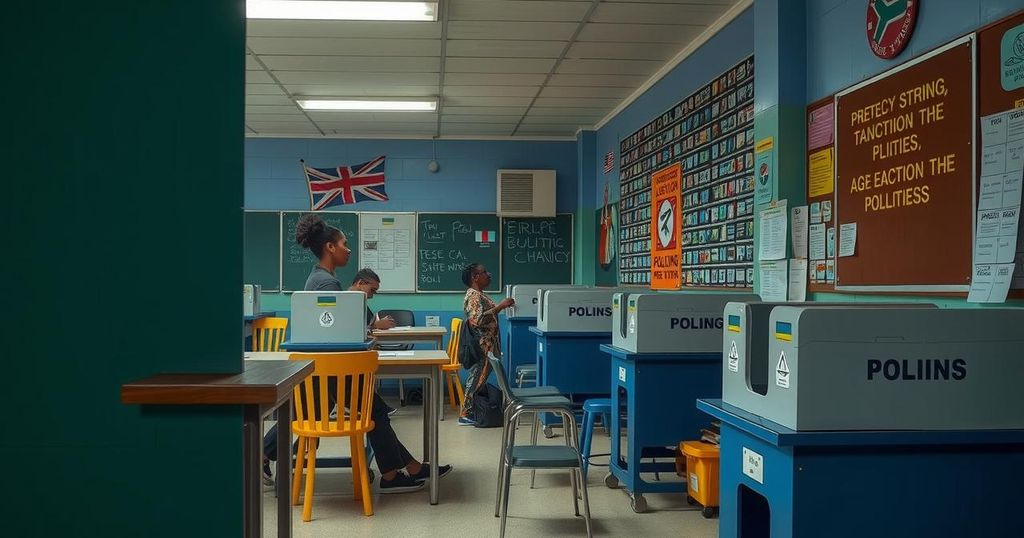Mauritius held parliamentary elections under challenging conditions influenced by a wire-tapping scandal and accusations of fraud. Prime Minister Pravind Jugnauth faced public scrutiny after leaked calls raised governance concerns, coinciding with a disputed sovereignty agreement for the Chagos Islands. Voter turnout stood at 40% as two major political blocs campaigned for 70 assembly seats amid calls for transparency and accountability.
Mauritius conducted parliamentary elections amidst allegations of wire-tapping and concerns over the integrity of the democratic process. Citizens voted on Sunday, with heightened police presence at polling stations due to fears of possible electoral fraud. Prime Minister Pravind Jugnauth’s administration faced scrutiny following the leak of secretly recorded phone calls and a controversial social media ban prior to the election that had to be rescinded after public outcry. With a 70-seat parliament at stake, the competing political factions are the ruling Militant Socialist Movement and an opposition alliance led by former Prime Minister Navin Ramgoolam, both promising reforms to address poverty and living costs. As of midday, 40 percent voter turnout was reported amid an atmosphere of campaign vigor characterized by numerous political rallies and visibility of party symbols. Election Commissioner Irfan Rahman emphasized that mechanisms were in place to secure a transparent election process. Registered voters exceeded one million in this twelfth election since the country gained independence in 1968, with 891 candidates vying for representation. Historically, Mauritius has maintained political stability and economic growth, but increasing concerns regarding governance and institutional integrity have emerged. Notably, researchers express growing worry about corruption within governance structures, referring to procurement scandals and the suppression of political opposition. Strikingly, Mauritius has recently dropped to second place in the Ibrahim Index, which evaluates governance quality across Africa. Notably, the elections occur following a pivotal diplomatic resolution regarding the Chagos Islands, where Britain relinquished sovereignty to Mauritius, though maintaining military operations in certain regions. Prime Minister Jugnauth posited this transfer as a step toward the nation’s finaling grounds for decolonization. In contrast, opposition calls for a political overhaul are voiced through the Linion Reform alliance, which has positioned itself against established political figures, advocating for transparency and anti-corruption measures.
The recent political climate in Mauritius reflects a tumultuous electoral context influenced by allegations of surveillance and concerns over the erosion of democratic principles. The parliamentary elections, contested by notable political blocs, occur against the backdrop of significant geopolitical developments, particularly regarding the long-disputed Chagos Islands. Historically recognized for its stable governance and economic prosperity, the nation’s political landscape is under scrutiny as internal governance issues and allegations of corruption arise alongside the elections. The shift in rankings within governance indices has prompted a reevaluation of Mauritius’ status as a leading example of democracy in Africa.
The parliamentary elections in Mauritius reveal a country at a crossroads, grappling with challenges to its democratic institutions and observing increasing public scrutiny toward governance practices. Amidst claims of electoral fraud and the controversial influence of leaked communications, both the ruling party and opposition factions are vying for control, each promising to tackle pressing issues such as poverty and maintenance of civil liberties. The response to the Chagos Islands sovereignty transfer highlights the complex interplay between domestic political struggles and international relations.
Original Source: www.bryantimes.com






